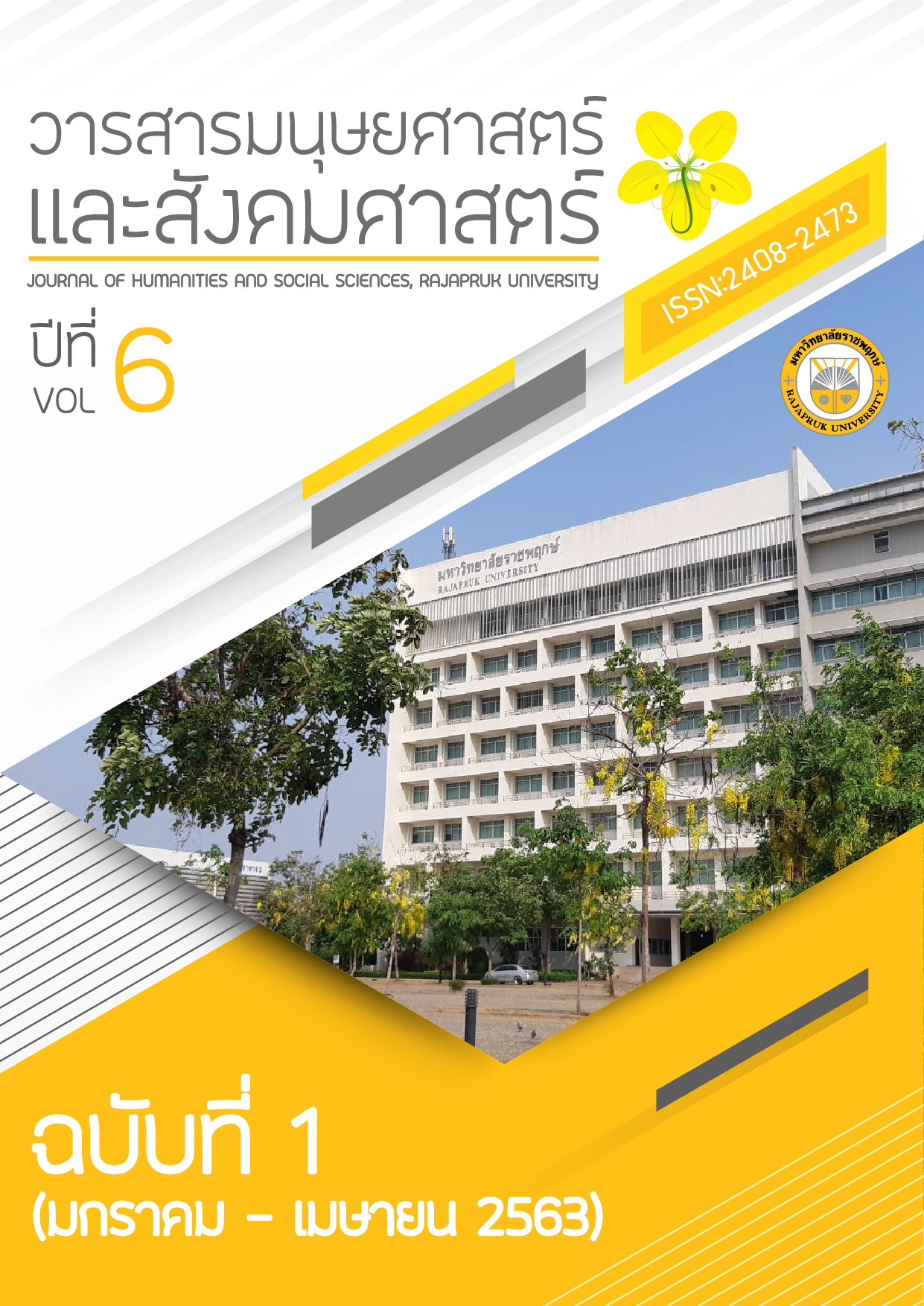Motivation Creation in Home Economics and Technology Instructional Learning by Using Tokens Economy in Elementary Level 3 at Ramkhamhaeng University Demonstration School (Elementary level)
Main Article Content
Abstract
The objectives of this research were: 1) to study the effect of motivation creation via applying a reward program in home economics and technology education utilizing a token economy in Elementary level 3 at Ramkhamhaeng University Demonstration Schoolm and 2) to study student achievement before and after home economics and technology education when applying a reward program. The sample group were Elementary 3/2 and 3/3, in the first semester of the academic year 2018 in total of 62 persons. The research was conducted by using an experimental research model. The experimental period was 3 weeks, 2 periods (50 minutes each) per week, totaling 6 periods. The research instruments were an achievement test, lesson plans, and a questionnaire for the opinions and feelings of students toward rewards receiving through answering questions and class participation. The questionnaire was a rating scale using analytic induction obtained from observation and the achievement measurement was analyzed by using mean and standard deviation. Achievement before and after learning were compared by using a t-test dependent.
The results found that using a reward program to increase motivation resulted in students being more enthusiastic to study, more responsible and interested in participating in various activities has been arranged by the instructor. In addition, the learning achievement of the learners was higher than before learning at the statistical significance level of .05.
Article Details
References
จรัสศรี พัวจินดาเนตร. (2560). หลักกิจกรรมพื้นฐานการงานอาชีพสำหรับครู. กรุงเทพฯ: จุฬาลงกรณ์มหาวิทยาลัย.
นุชลี อุปภัย. (2556). จิตวิทยาการศึกษา. กรุงเทพฯ: จุฬาลงกรณ์มหาวิทยาลัย.
พระสุวรรณ สุเมธปุญฺโญ (ขำโพธิ์ทัย). (2560). การจัดการเรียนรู้ โดยการเสริมแรงด้วยเบี้ยอรรถกรเพื่อพัฒนาพฤติกรรมด้านระเบียบวินัยของนักเรียนในวิชาประวัติศาสตร์ ชั้นประถมศึกษาปีที่ 4 โรงเรียนวัดถอนสมอ จังหวัดสิงห์บุรี. ปริญญาพุทธศาสตรมหาบัณฑิต สาขาวิชาการสอนสังคมศึกษา จุฬาลงกรณราชวิทยาลัย.
เพ็ญประภา พุฒซ้อน. (2559). ผลการสร้างแรงจูงใจในการเรียนวิชาภาษาไทยโดยใช้เบี้ยอรรถกรของนักเรียนระดับชั้นมัธยมศึกษาปีที่ 4 โรงเรียนเตรียมอุดมศึกษาพัฒนาการ. วารสารออนไลน์บัณฑิตศึกษา คณะศึกษาศาสตร์ มหาวิทยาลัยรามคำแหง.
สุกัญญา จิวัฒนาชวลิตกุล. (2557). ความสามารถในการบวกของนักเรียนที่มีความบกพร่องทางการเรียนรู้ โดยใช้ขั้นการเรียนรู้ของ สถาบันส่งเสริมการสอนวิทยาศาสตร์ และเทคโนโลยี (สสวท.) ร่วมกับสื่อประสมและเบี้ยอรรถกร. วิทยานิพนธ์ปริญญาครุศาสตรมหาบัณฑิต สาขาวิชาการศึกษาพิเศษ บัณฑิตวิทยาลัย มหาวิทยาลัยราชภัฏสงขลา.
สุชาดา กลางสอน และ สุวรี ศิวะแพทย์. (2558). ผลของการเสริมแรงทางบวกต่อพฤติกรรมก่อกวนในชั้นเรียนของเด็กสมาธิสั้น. วารสารศึกษาศาสตร์ ฉบับวิจัยบัณฑิตศึกษา มหาวิทยาลัยขอนแก่น, 9(4) ตุลาคม - ธันวาคม 2558: 212 - 219.
อัชรา เอิบสุขศิริ. (2559). จิตวิทยาสำหรับครู. กรุงเทพฯ: จุฬาลงกรณ์มหาวิทยาลัย.
Kazdin, Alan E. (1977). The Token Economy: A Review and Evaluation. New York: Plenum Press.
Walker, H.M.;& H. Hops. (1976). Use of Normative Peer Data as Standard for Evaluating Classroom Treatment Effect. Journal of Applied Behavior Analysis.


